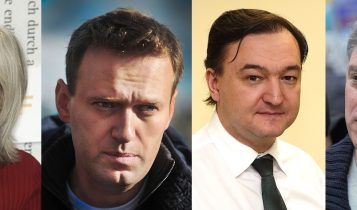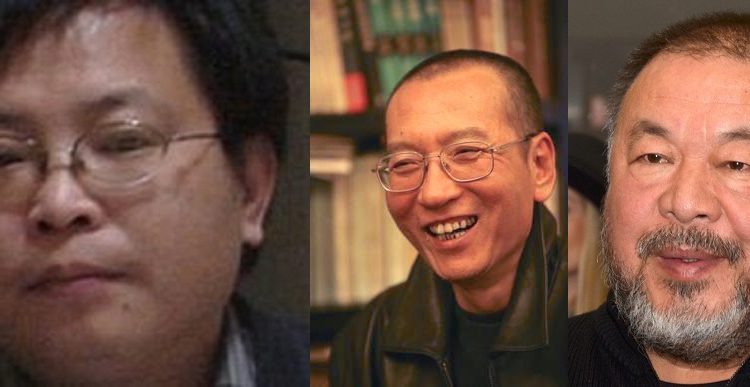Counterspin: Apasiev Spins that There Are No Dissidents in Russia and China
The leader of the “Levica” (Left) party and MP, Dimitar Apasiev, on his Twitter account, referring to the dissident activity, expressed views representing a classic spin:
Spin: Astonishingly, the greatest DISSENTS of our time (Assange, Snowden and Manning) do not come from Russia or China, but the United States. This is the end of human rights stories in the West, the end of the era of liberalism.
[Source: Twitter – Date: 11 December 2021]
Counterspin: Apasiev’s statement that the greatest dissidents of our time do not come from Russia or China, but from the United States, insinuating that the United States is a regime disrespecting human rights is an example of manipulation tactic called whataboutism.

This tactic originates from the Soviet Union Communist Party and was especially used during the Cold War (1947-1991) by Soviet representatives during their talks with their Western counterparts. It includes disregarding the other sides’ arguments all together, while finding seemingly look-a-like counter arguments and using them to counter attack, despite the fact that the counter arguments might be false, relying on disinformation, illogical, outdated, lacking proportionality, etc.
Well known historic example of whataboutism would are Soviet propaganda responses to Western accusations against Soviet Union for imprisoning millions of its’ citizens in Siberia’s gulags, without respecting their basic human rights. As a tactic to divert or defocus the public attention, Soviet response would include “counter argument” asking “but what about…” (this is where the name of this debating tactic comes from) a supposed human rights infraction in the West. Civil rights issues were especially exploited during the Cold War, as Soviet propaganda attempted to portray cases of racial discrimination, poverty or unemployment in the US as pervasive and a symptom of fallings of capitalist system that should be erased by introducing state socialism.
For instance, the Soviet representatives in an international body debating human rights violations would mention some trial in a US southern state where a white judge would unjustly sentence a black man to a lengthy sentence, completely disregarding the proportionality of both events, the fact that in the US there was actually a trial, and especially the fact that putting millions of people in Gulags was a state sanctioned policy, while the other event was one court case having nothing to do with the US official policies.
The actual situation in Russia
First and foremost, one could just consult the list of journalists in Russia murdered before and during the reign of the president Vladimir Putin to clearly and speedily find out and understand how ridiculous this claim from Mr. Apasiev’s tweet is. Since 1993 over 200 journalists have been killed in Russia. Many of them had been criticizing the existing Russian regime, and some while covering the wars of the Chechen-Russian conflict.

Mr. Apasiev’s statement fails to take into account the vast number of dissidents in Russia, both among the journalists and other professions. Journalist, writer, and human rights activist Anna Politkovskaya was murdered in the elevator of her block of flats in 2006 and while five men were sentenced to prison for the murder in 2014, but it is still unclear who ordered or paid for the contract killing.
The 2008 arrest and subsequent death after eleven months in police custody of tax advisor Sergei Magnitsky generated international media attention and triggered nquiries into allegations of fraud, theft and human rights violations in Russia
One of the best known dissidents of our time coming from Russia, Alexei Navalny, currently serving a two-and-a-half-year prison sentence for violating a suspended sentence from 2014. His arrest has sparked tensions in relations with the West which is seeking his release.
Apasiev may have forgotten how Navalny was poisoned with the nerve agent Novichok in 2020, before being arrested, as confirmed by the German government, citing the results of the investigation. Navalny suddenly fell ill on a flight from Siberia to Moscow on 20 August this year. He was initially hospitalized in the Russian city of Omsk and was later transferred to Berlin.
In July 2021, Russian media regulator “Roskomnadzor” blocked 49 websites linked to this Kremlin critic.
For the past decade, the public has remembered the murdering of journalists, vocal critics of governments in the former Soviet states of Russia, Ukraine and Belarus. Arkady Babchenko, a Russian journalist was murdered in his apartment in Kiev, most likely because of his work. Russian MP Denis Voronenko. Russian journalist Alexander Shchetinin was also murdered in Kiev in his apartment.
In February 2015, four bullets in the back killed the Russian opposition leader and Vladimir Putin’s biggest critic, Boris Nemtsov. The 55-year-old leader was shot dead as he returned from dinner with famous Ukrainian model Anna Durytska and crossed the bridge leading to the Kremlin and Red Square. Nemtsov was the founder of the opposition movement Solidarity, a member of parliament and deputy prime minister during Yeltsin’s rule. He has sharply criticized Putin for his direct involvement in the Ukraine war and accused him of spending billions of dollars from the country’s budget on luxuries. He claimed that Putin spent $ 2 billion a year on the maintenance of yachts and planes alone.
It was no accident that Nobel Peace Prize for 2021 has been awarded to Russian independent newspaper Novaya gazeta Editor in Chief Dmitry Muratov and Filipino-American journalist Maria Ressa “for their efforts to safeguard freedom of expression.” Muratov had been receiving death treats for years, while six associates of his newspaper had been murdered or had died under suspicious circumstances. One of them was Anna Politkovskaya.
The actual situation in China
There are dissidents in China as well. Reporters Without Borders regularly list China as one of the “biggest jailers of journalists” in their annual reports. For instance the “Worldwide Round-up of journalists killed, detained, held hostage or missing in 2018” notes 60 imprisoned journalists in China.

In 2011, a court in southwest China reached a scandalous verdict sentencing dissident Chen Wei to nine years in prison for publishing pro-democracy essays online. Zheng Jianwei, Chen’s lawyer, said a court in Suning had convicted the dissident and human rights activist of “inciting the overthrow of state power”. Although the essays were published outside of China, the court found that they had a major malignant impact in China, even though the majority of Chinese could not even read them, said Chen Wei’s wife, Wang Xiaoyan.
In December 2009 in China, one of the most notorious dissidents, Liu Xiaobo, 54, was sentenced to 11 years in prison, for calling for political reform in China, including freedom of association and expression.
He won the 2010 Nobel Peace Prize for his long and non-violent struggle for basic human rights in China. Xiaobo died in July 2017 in a hospital in China while serving an 11-year prison sentence for “subversion”.
Ai Weiwei is also a well-known Chinese artist and dissident. He lives and works in Berlin. The project that made him famous was the installation of 100 million handmade porcelain sunflower seeds – a pictorial, an interactive and attractive metaphor for world capitalism (2010). The following year, he was detained by police for 81 days, allegedly on suspicion of tax evasion. It is much more likely that his projects, which were often openly critical of the Chinese government and its policies, made him a target for threats from the authorities.
Ai Weiwei was arrested in April 2011 at Beijing Capital Airport. He wanted to fly to Taiwan via Hong Kong, where he worked on an exhibition. His studio in Beijing was searched and several of his associates questioned. The reason for the arrest and search was completely unknown. One of Wayway’s close friends said the artist had had a conflict with authorities before. However, this time it seems that it is a serious action against him said his close friend.
In June 2019, Ai Wavey visited WikiLeaks founder Julian Assange at a prison hospital and said his condition had “deteriorated”, urging Britain and other European countries to stop his extradition to the United States.
These are only some of the Russian and Chinese dissidents, quite well known to the public, but many others are not so well known. However, this does not mean they do not exist, as Apasiev suggests. It is obvious that the leader of the Levica party is created this spin in favor of Russia and China, presenting them much more favorably, as opposed to the United States where, as Apasiev claims, human rights have not been respected. He even disregards the fact that Julian Assange is not even a US citizen, but an Australian one. In any case, the whole argument is far removed from the facts and represents a spin and manipulation.
All comments and remarks regarding this and other Vistinomer articles, correction and clarification requests as well as suggestions for fact-checking politicians’ statements and political parties’ promises can be submitted by using this form
